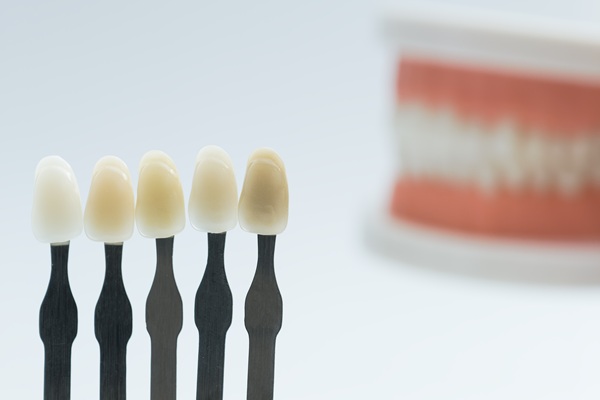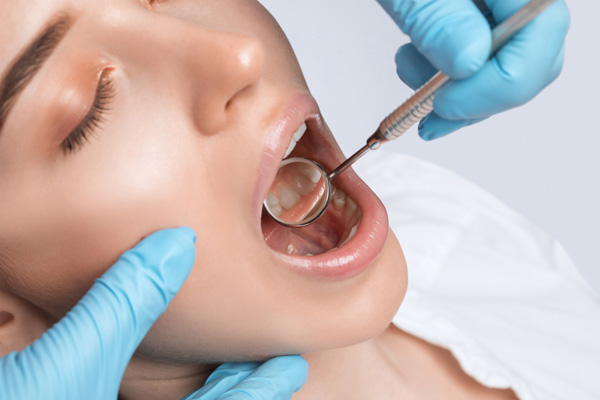Deep Teeth Cleaning Gum Aftercare

Using proper deep teeth cleaning techniques can help prevent serious oral health problems in the future. However, some people are hesitant to have this procedure done because they are concerned about the amount of time that it will take for their gums to heal properly afterward. Here, we explain how long it takes for the gums to heal after having teeth cleaning so patients can be confident in their decision to have this procedure done at their next appointment with us.
Pain after deep teeth cleaning
Although tooth-cleaning is relatively painless, some people experience pain and discomfort after a cleaning procedure. While most cases of mild pain after teeth cleaning will resolve themselves within a few days, there are instances when patients may need professional help. For example, if they are experiencing intense pain or persistent bleeding after teeth cleaning, they should contact a dentist immediately. People should not wait until morning to get things checked out! Deep gums cleanings can be quite serious, and if an infection develops in the mouth or gums, they may not be able to heal on their own.
Healing time for bleeding gums
When a dentist performs deep teeth cleaning, they may use a high-speed motorized brush and a variety of different tools to help scrape away the excess plaque and debris. This cleaning allows a surface for the gums to reattach. The depth of cleaning required to eliminate plaque from beneath their gum line will likely mean that their gums begin bleeding during treatment. When a patient returns home from receiving a deep teeth cleaning, they might experience some minor bleeding from their gums. If an inidividual's gums bleed profusely or if they experience major pain after receiving a cleaning, they should contact a dentist immediately—this could be an indication of something more serious going on inside of their mouth. It’s important to know how long it takes for bleeding gums to heal so that they can recognize when something is amiss and alert a dentist before any damage can occur.
Home remedies for sore, bleeding gums
Good oral hygiene can help reduce the risk of gum disease and tooth decay. Rinsing the mouth with a saltwater solution is a good place to start, but there are some other, more effective ways they can treat sore, bleeding gums at home—if that’s what they have.
If a person is suffering from inflamed gums, one of their first stops should be their dentist. A dentist can take an accurate medical history and help decide if a person needs antibiotics or antiseptic mouthwashes in addition to home care. If that’s not possible, they can try rinsing with baking soda solution (3 teaspoons dissolved in 1 quart of warm water) or salt water (1/2 teaspoon salt dissolved in 1-quart warm water). Gargle with them at least once a day. People can also put some crushed ice in a bowl and use their clean fingers to rub over teeth, which will soothe gum tissue.
Finally, individuals can try rinsing with lemon juice. Citric acid is a natural antibacterial agent and can be helpful in fighting inflammation. The benefit of lemon juice over saltwater is that its antibacterial properties will last longer once they rinse the solution out of their mouth. For best results, stick with apple cider vinegar, which also has natural anti-inflammatory properties. People can try one teaspoon of ACV dissolved in 1 quart of warm water or make an infusion by pouring about three tablespoons of vinegar into 1 cup of boiling water; let it steep until cool before drinking.
Keeping the gums soothed after an appointment
The discomfort felt for many people after an appointment can vary widely. It is important that each patient evaluate their level of discomfort and identify the solutions that work best for them. In addition to the solutions above, individuals can alter their diet to include foods and drinks that soothe their mouths. This can include cold or warm liquids, and soft foods, including yogurts and jello. Patients should speak with their dentist about medications or topical anesthetics that can help to reduce any discomfort felt after their procedure.
It is also important to maintain excellent dental hygiene after a person has received dental care, as the gums require some time to heal. While the gums heal, it is important to protect against the potential of infection. If a person notices excessive discomfort or bleeding, they should consult with their dentist for more options.
Request an appointment here: https://www.johnscreekteeth.com or call Johns Creek Dentistry at (770) 623-1427 for an appointment in our Johns Creek office.
Check out what others are saying about our dental services on Yelp: Deep Teeth Cleaning in Johns Creek, GA.
Recent Posts
Regular dental cleaning is a small effort with a payoff that can last a lifetime. This may sound like a bold claim, except that it happens to be true. Read on to learn why routine dental visits are good for your oral health.Routine dental checkups come in two parts. The first half consists of a…
Maybe you have put off doing your bi-annual dental cleaning and checkup due to your busy schedule. Perhaps you are afraid of going to the dentist because you have neglected your oral hygiene. Regardless of the reason, failing to keep a regular schedule of bi-annual dental cleanings and checkups has more disadvantages than you think.…
Many people question the importance and effectiveness of a routine dental cleaning. To help you understand this preventive treatment, this article covers answers to commonly asked questions about dental cleanings.Patients should get clean teeth and fresh breath after the dental cleaning. Cleanings are normally painless and take less than 45 minutes. The dentist will scrub…
There are generally no preparations that are required for a dental cleaning. However, there are certain things that you can do to help ensure the visit goes well. This is particularly useful for patients that may have dental anxiety or not know what they should expect for the visit.The best ways to prepare for dental…


